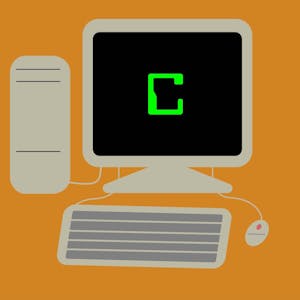This course, "C for Everyone: Programming Fundamentals," offered by the University of California, Santa Cruz, is designed for individuals from diverse backgrounds. It serves as an essential entry point into the world of coding, emphasizing the universal relevance of programming skills in today's society.
Through a structured curriculum, students will explore the C language, gaining the ability to write and analyze simple programs, compile, debug, and run code, and understand computing processes at a profound level. The course spans five weeks, with an estimated time commitment of five hours per week, making it accessible to learners with varied schedules and commitments.
Key topics covered in the course include lexical elements and data types, flow of control and simple functions, advanced functions, recursion, arrays, and pointers. Participants will develop a comprehensive understanding of fundamental programming concepts, including logical operators, expressions, short-circuit evaluation, conditional and iterative statements, as well as advanced functions, recursion, and data structures.
Certificate Available ✔
Get Started / More Info
This course comprises six modules, covering a range of fundamental programming concepts, from the history of C and lexical elements to arrays, pointers, and a final exam.
This module introduces the course and delves into the history of the C language, providing a foundation for understanding its significance in the realm of programming. Participants will explore the process of compiling, debugging, and running programs, gaining practical skills from the outset. Additionally, they will engage in writing their first program and exploring simple input/output operations.
Module 2 focuses on lexical elements and data types, providing an in-depth examination of character sets, tokens, keywords, and identifiers. Participants will also delve into operators, expressions, and precedence, enhancing their understanding of fundamental programming constructs. The module culminates in a quiz and optional advanced activities for further learning.
This module centers on the flow of control and simple functions, covering logical operators, expressions, conditional and iterative statements, as well as oddball operators and the switch statement. Participants will gain practical experience through code examples and quizzes, reinforcing their understanding of these essential programming concepts.
Module 4 delves into advanced functions, recursion, arrays, and pointers, providing participants with a comprehensive understanding of function definition, prototype, variables, and scope rules. Participants will explore recursion, arrays, pointers, and practical applications, including sorting algorithms and computational tasks.
Module 5 focuses on arrays and pointers, enabling participants to understand the fundamental principles of arrays, pointers, and their applications in programming. Through code examples and practical exercises, participants will gain proficiency in working with arrays, pointers, and utilizing them as parameters in functions.
The final module encompasses the course's culminating assessment, providing participants with an opportunity to demonstrate their understanding of the C language fundamentals and practical applications through a comprehensive final exam.
Introduction to Computer Science and Programming provides a foundational understanding of computer systems, mathematical principles, and programming skills essential...
IBM COBOL Basic Testing and Debugging provides essential training in identifying and resolving COBOL errors, testing techniques, and debugging methods.
Process Personal Details using Methods in Java: Learn to create a Java program that processes personal details using methods, multiple classes, and objects.
Building RESTful APIs with Node.js and Express equips you with the skills to create scalable, robust, and secure APIs.